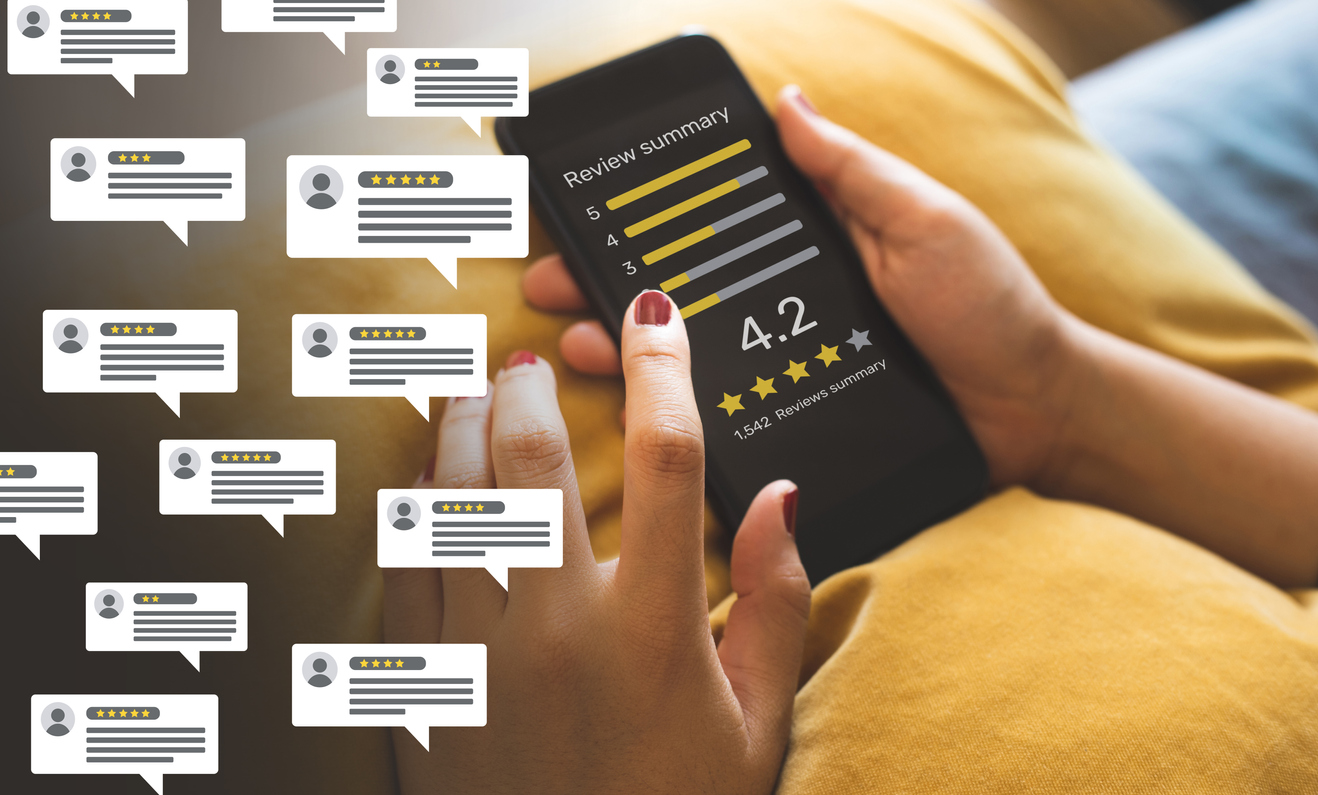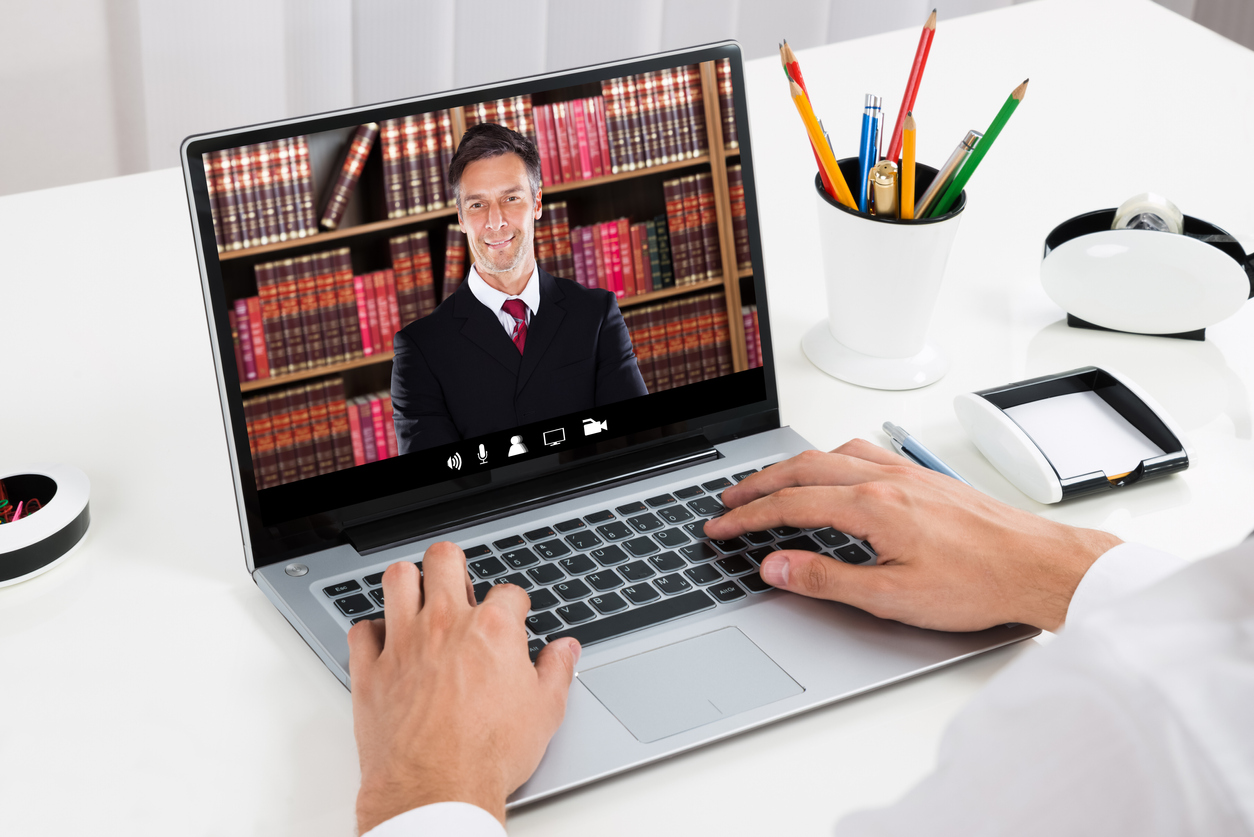The internet has changed how potential clients locate attorneys. They often begin searching for attorneys by Googling attorneys near them. They narrow their list by reading online reviews on social media sites, Yelp, Avvo, Google, and other online review sites. Having a robust online presence can boost a lawyer’s business significantly. For the most part,…
Read MoreEvery state has its own bar association, and every bar association sets its own legal and ethical rules regarding legal advertising. In addition, the American Bar Association is an overarching association which often sets standards and rules adopted by states individually. Issues around legal advertising fall into three broad categories: What is legal or illegal?…
Read MoreZoom is booming. Covid19 has pushed attorneys out of their offices and into their homes to work remotely. As a result, video conferencing has taken on a greater role in the workplace. Attorneys need to be able to interview clients, attend hearings, and conduct depositions as a matter of routine.
Video conferencing platforms such as Zoom, GoToMeeting, and Microsoft Teams, have made that possible in a pandemic world. Although many law firms had been using video conferencing tools before the pandemic, their use has escalated. But these platforms are not without concerns for an attorney and for their clients.
Understanding these concerns is a starting point toward solving problems before they manifest. Many of these issues stem from an attorney’s ethical duties to their clients. The Model Rules of Professional Responsibility have been adopted in most jurisdictions in the United States, including California. These Model Rules, as adopted, govern an attorney’s ethical duties. Three Model Rules are relevant to the ethical concerns raised by such platforms as Zoom.
Attorneys Must Be Competent
Model Rule 1.1 states that an attorney must provide competent representation to the client. This requires that an attorney have or gain the legal knowledge, skill, thoroughness, and preparation necessary for that representation. Much of the issue of competence lies in an attorney’s skill in providing legal analysis. Comments by the American Bar Association and State Bar of California make it clear that competence includes keeping abreast of relevant technology.
According to Brian White, a lawyer and founder of Attorney Brian White & Associates, PC, “An attorney must understand how technological changes affect issues such as confidentiality and protecting work product. All video conferencing platforms have some security involved. Zoom is the most studied platform on security. However, it is important to understand a platform’s security tools and any deficits in those tools.”
Using Zoom as an example, maintaining security of the meeting link and password are critical to ensuring that only those who should be attending the meeting, are. That may mean using a new meeting link for each meeting or sending a password separately from the link itself.
There are other issues regarding security and encrypted sources for the sharing of documents. Again, using Zoom as an example, it is possible to share the screen during a client meeting. Attorneys must be careful that in doing so, they do not disclose other client information. Sharing screens can and should be regulated by the meeting host and documents should only be shared via encrypted means.
Attorneys Must Protect a Client’s Confidentiality
Model Rule 1.6 requires that an attorney protect a client’s confidentiality. This includes various aspects from the representation itself to client disclosures to work product and other client documents. Confidentiality is the bedrock of the attorney-client relationship.
The above security discussion is relevant to the issue of confidentiality. It is important that extra precautions be taken for sensitive meetings. An attorney may want to consider locking the meeting after everyone has joined.
Recording a session can mean that an attorney considers the issue of storage of the recorded session. For example, Zoom allows the meeting host to store the recording on the attorney’s computer, or it can be stored on Zoom’s cloud. The location of the cloud server may be an issue for sensitive material. For sensitive communications, an attorney should consider whether the platform allows end to end encryption or not. This can be an important component in determining which video conferencing tool to use for what kind of meeting.
An Attorney Must Keep the Client Up to Date
In both the Model Rules and in the California Rules of Professional Responsibility, the attorney must keep the client reasonably informed about the status of a matter and follow reasonable requests for information. (Rule 1.4) This imperative requires that despite the pandemic, that an attorney keeps their client advised of the status of the legal matter. During representation, some matters are more sensitive than others, but all client communications are subject to confidentiality concerns.
Picking the medium most suited to the level of security needed is critical to keeping the client informed and protecting confidential information. This duty extends to any other staff conducting the meeting on behalf of the attorney.
Finally, a word of caution for the attorney working at home. It is important that an attorney work in a dedicated area free from traffic from other family members. While a dog entering the camera shot may be cute, a spouse entering the same camera shot is a violation of the client’s confidentiality.
Concluding Thoughts
Attorneys must fully investigate and use tools available to protect client communications. This may mean spending time learning about security tools available and making appropriate choices depending on the level of sensitivity involved. For sensitive matters, an attorney may want to choose a video conferencing tool with end to end encryption.
Technology is ever-evolving. It is important to stay abreast of the technological tools that are available at present and other tools as they become available. This will help attorneys do their job and help clients feel secure.
Read More
Covid-19 has affected every aspect of our lives, including our working lives. Suddenly, firms are advertising remote legal positions on job board sites around the country. An attorney licensed to work in New York, lives and works remotely in his home in New Jersey.
This doesn’t just involve those whose work and home lives are in close proximity but in separate jurisdictions. Attorneys are looking to work far outside their normal jurisdiction. Remote work makes this possible. However, attorneys are bound by ethical standards and some of those standards are relevant to remote working. In particular, lawyers are licensed or authorized to work in a particular state. They are not licensed to work outside that state. Doing so may open them to a charge of the unauthorized practice of law, which can lead to sanctions or possible disbarment.
The Movement Toward Loosening Restrictions
Even before the onset of Covid-19, attorneys had been calling for reform of what many view as protectionist rules that prohibit an attorney admitted in one state from practicing in another. Computers, internet, and conferencing platforms all make it possible to do much of the work involved in an attorney’s work life from any location. According to Jason Stephens of Stephens Law PLLC, “With the realities of Covid in the workplace, remote working has become the norm for many attorneys”. As a result, more attorneys are now working outside their jurisdiction.
ABA Model Rule 5.5
The American Bar Association’s (ABA) Model Rule 5.5 addresses practicing across jurisdictional lines. Most states have adopted Rule 5.5 in some form.
Rule 5.5 prohibits any attorney from practicing law in a jurisdiction in violation of the regulation of the legal profession in that jurisdiction. Nor may an attorney assist another in doing so. Specifically, the Rule states that an attorney may not establish an office or other systematic and continuous presence in that jurisdiction for the practice of law, or hold themselves out to the public as being admitted to practice law in that jurisdiction.
The Rule also carves out exceptions to this general rule. It is acceptable for an attorney to work in another jurisdiction in which the attorney is not licensed provided the employment is temporary. However, the attorney may not have been disbarred or suspended in any jurisdiction. In addition, the attorney must be working in association with a duly licensed attorney in that jurisdiction.
The Rule also provides another safe harbor provision. It is acceptable for an attorney in good standing within their home state to work temporarily, providing legal services that arise out of or are reasonably related to the lawyer’s practice in a jurisdiction in which the lawyer is admitted to practice.
So, when does work stop being temporary and cross into persistent practice? While there is no bright line, the work may not be so long that it rises to the level of systematic and continuous presence in that jurisdiction. This standard is one that is open to interpretation.
States Are Beginning to Address the Problem
Seeing the possibility of remote working as a necessity for some time to come, states are beginning to address the jurisdictional issue. Some states already allow lawyers to practice across state lines, Minnesota, North Carolina, Arizona, and New Hampshire among them. These states allow out-of-state lawyers to practice as long that they disclose that they’re not licensed to practice in that state.
Washington D.C has also relaxed its rules during the pandemic. The DC Court of Appeals Committee on Unauthorized Practice of Law has opined that the necessity to work remotely due to Cvid-19 fits within the temporary practice exception outlined in Rule 5.5. New York has allowed a similar exception.
Florida is considering making the change permanently. A Florida state bar advisory opinion has stated that an out of state attorney is not engaged in the unauthorized practice of law if solely practicing federal intellectual property matters, which was his area of expertise as long as the attorney was not practicing Florida law. While this will have to be confirmed with Florida Supreme Court action, it represents movement toward an ethical approach to serving client needs.
What Will Happen After The Pandemic Ends?
It is uncertain whether the rules regarding crossing jurisdictional boundaries will continue to relax after the pandemic ends. The trend is likely to continue into the near future. But as one year stretches into two, the question of what is “temporary” will undoubtedly have to be revisited.
Read More



